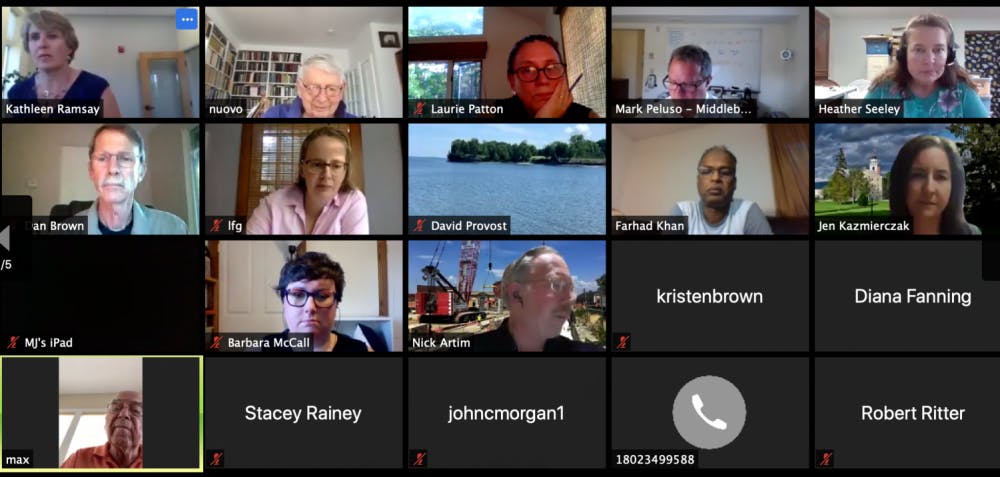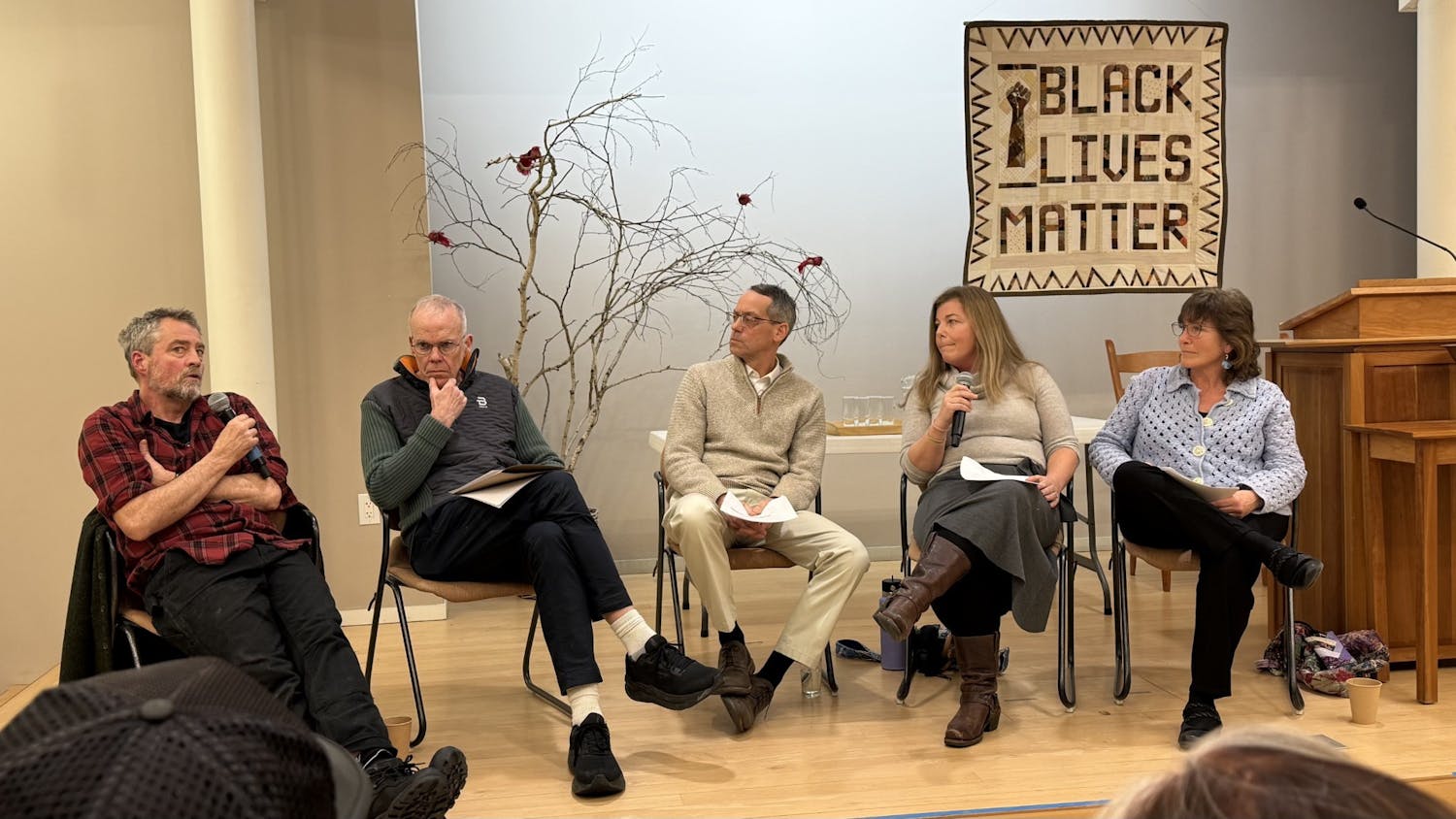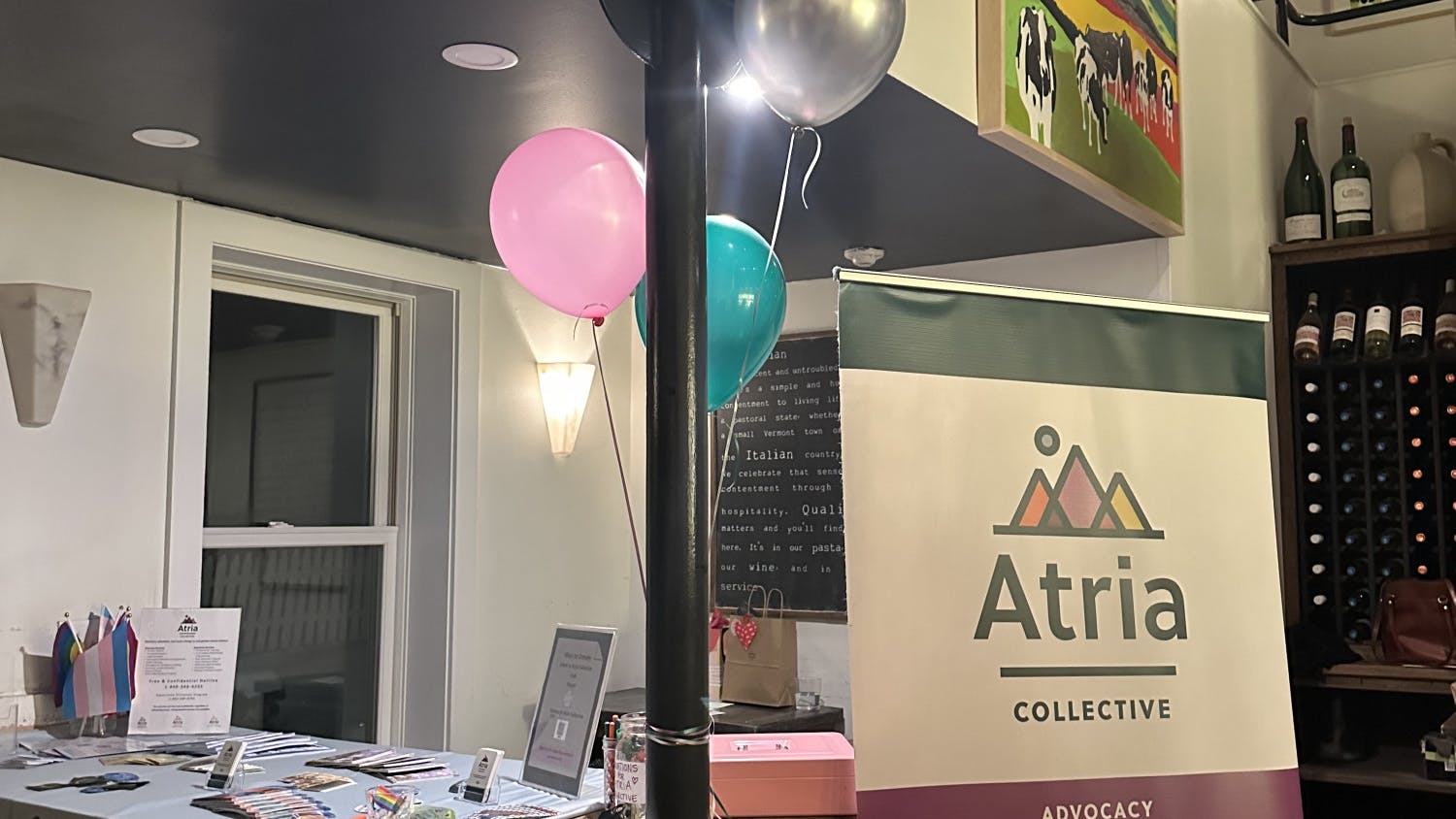College administrators and health officials met with the Middlebury Town Selectboard on July 28 to share the college’s reopening plan with the community. Residents shared their biggest concerns about the reopening of campus, including the return of students in August, Middlebury’s testing capabilities, whether students will obey new policies regarding social distancing and the status of students living off-campus.
The panel was slated to give a presentation featuring numerous graphics, but at the beginning of Patton’s presentation, a hacker Zoom-bombed the meeting. The hacker wrote a threat that included a racial slur and drew what appeared to be a swastika on screen, eventually rendering the slides unreadable. Administrators carried on despite the interruptions.
The meeting is being Zoom-bombed. "I am not going to be able to read these slides," Patton says. pic.twitter.com/1Vjum42VOq
— Benjy Renton (@bhrenton) July 28, 2020
President Laurie Patton and College Physician Dr. Mark Peluso were adamant that science serves as the foundation for the college’s planning, saying that Middlebury “will not open if it is not incredibly safe to [do so].” Both highlighted the role the Centers for Disease Control and Prevention, National Institutes of Health and Vermont Department of Health have played, and will continue to play, in the reopening process.
When asked about what it would take for the college to reverse its decision to hold in-person classes, Peluso said that he is weighing numerous factors including but not limited to state and local infection rates and the virulence of the virus.
“We’re at a different place now than we were in March,” he said.
One focus of the meeting was the immediate and rapid return of students that will begin on August 18. Members of the administration pointed to the importance of the at-home two-week quarantine all students are required to complete before coming back to campus.
Director of Health and Wellness Education Barbara McCall highlighted the important role that student leaders in the Student Government Association and Residential Life will play in establishing a culture of adherence to the new protocols and policies. The panel said that students living on campus will have to comply with all of the new protocols at all times. Specific protocols include wearing face coverings both indoors and outdoors during the first phase of return, as well as obeying strict capacity limits for different rooms and facilities on campus.
On the topic of sufficient testing, Peluso said Middlebury “definitely has the testing capacity we need” and cited the partnership with the Broad Institute, which will be supplying the college’s test kits. Also important, Patton and Peluso noted, is a mandatory online education course students will take before coming to campus centered around the new Covid-19 policies in place this coming semester.
Community members were particularly concerned with students living off-campus, both enrolled in classes and not. Dean of Students Derek Doucet stated that “all students living in Vermont, regardless of enrollment status, are required to share local addresses and comply with Vermont health and safety regulations.”
Students living off campus will have a contact staff-person who will perform routine check-ups, dubbed “in-town rounds,” to ensure college, state and local restrictions are being met, he added.
Doucet and Patton will hold meetings with all of the students living off campus to stress the importance of these policies. Doucet was firm in the college’s commitment to ensuring the safety of local residents. “We won’t tolerate behaviors that pose risk to the community,” he said.
Doucet told the community that his office would handle conduct violations as they occur, asserting that he did not want to “downplay the deter effect as we negotiate sending students home, which we are absolutely prepared to do.”
McCall pointed to a recent survey in which students were asked to rank factors that are most important to them. Protecting the community was number one, with students’ academic careers and personal health and safety second and third, respectively.
Representatives from the college administration said they were confident in their plans, and Selectman Nick Artim called it a “very good presentation.” The panel assured the community that the college’s Senior Leadership Group has the community’s health and safety firmly in their minds as they draw up plans for the fall.




